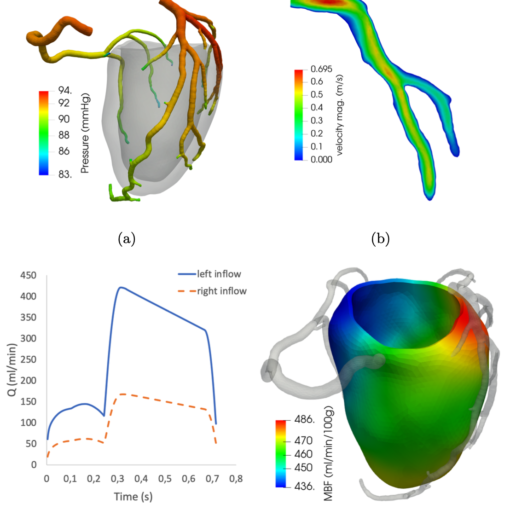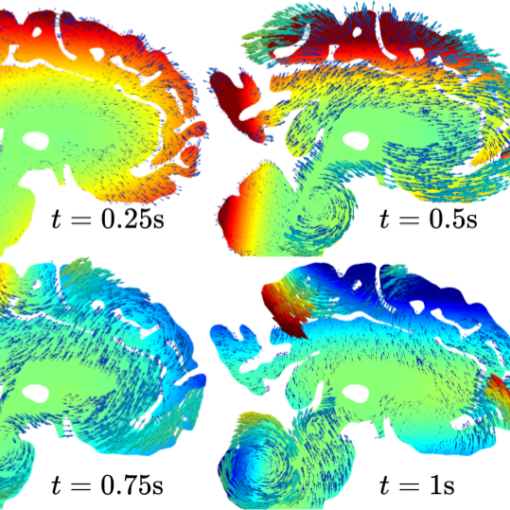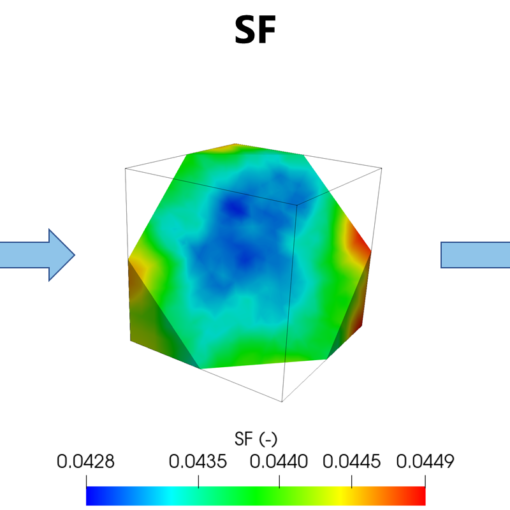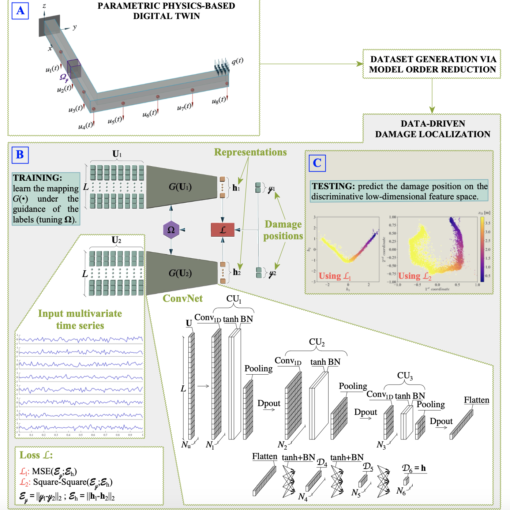A new MOX Report entitled “A discontinuous Galerkin method for the three-dimensional heterodimer model with application to prion-like proteins’ dynamics” by Antonietti, P.F.; Corti, M.; Lorenzon, G. has appeared in the MOX Report Collection. Check it out here: https://www.mate.polimi.it/biblioteca/add/qmox/51-2024.pdf Abstract: Neurocognitive disorders, such as Alzheimer’s and Parkinson’s, have a wide social impact. These proteinopathies involve misfolded proteins accumulating into neurotoxic aggregates. Mathematical and computational models describing the prion-like dynamics offer an analytical basis to study the diseases’ evolution and a computational framework for exploring potential therapies. This work focuses on the heterodimer model in a three-dimensional setting, a reactive-diffusive system of nonlinear partial differential equations describing the evolution of both healthy and misfolded proteins. We investigate traveling wave solutions and diffusion-driven instabilities as a mechanism of neurotoxic pattern formation. For the considered mathematical model, we propose a space discretization, relying on the Discontinuous Galerkin method on polytopal/polyhedral grids, allowing high-order accuracy and flexible handling of the complicated brain’s geometry. Furthe! r, we pre sent a-priori error estimates for the semi-discrete formulation and we perform convergence tests to verify the theoretical results. Finally, we conduct simulations using realistic data on a three-dimensional brain mesh reconstructed from medical images.
You may also like
A new MOX Report entitled “Personalized pressure conditions and calibration for a predictive computational model of coronary and myocardial blood flow” by […]
A new MOX Report entitled “Polytopal discontinuous Galerkin discretization of brain multiphysics flow dynamics” by Fumagalli, I.; Corti, M.; Parolini, N.; Antonietti, […]
A new MOX Report entitled “A computational model of the tumor microenvironment applied to fractionated radiotherapy” by Possenti, L.; Gallo, A.; Vitullo, […]
A new MOX Report entitled “Structural health monitoring of civil structures: A diagnostic framework powered by deep metric learning” by Torzoni, M.; […]





